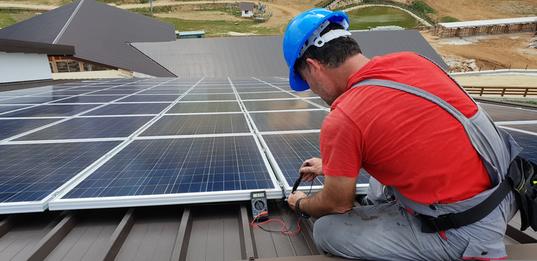New Delhi, 8 April 2024: In a promising push to India’s net zero goals 10 major Indian businesses are on track to double their energy productivity, according to Climate Group’s latest EP100 Annual Disclosure Report.
By being members of EP100 - Climate Group’s global corporate energy efficiency initiative - the businesses have committed to doubling their energy productivity within 25 years of their joining EP100. While the year of joining differs among members, on average they have achieved 64% of their EP100 commitments.
Two EP100 companies - Mahindra Heavy Engines Ltd. and Ultratech - have reported achieving their energy productivity targets. Four member companies operate in the hard-to-abate cement sector.
Atul Mudaliar, Director of Systems Change - India, Climate Group said of the development:
“The world needs businesses to not just show willingness but also act on climate action. Our latest EP100 data suggests that companies in India, including those in the hard-to-abate sector, are strongly on track to meet their energy efficiency commitments. What we are talking about is a large-scale shift in their operations, which is not an easy thing to do. Energy saved is energy earned and we hope they will continue investing in energy smart solutions and that other businesses will follow.”
The 10 businesses are Chalet Hotels, Dalmia Cement, Godrej Industries, Godrej & Boyce, JK Lakshmi Cement, Mahindra & Mahindra, Mahindra Heavy Engines Ltd., Mahindra Holidays and Resorts, Swaraj Engines and Ultratech.
EP100 is a global group of over 120 energy smart companies, operating across 157 markets globally, committed to measuring, optimising and reporting on their energy efficiency improvements. Just four categories of appliance: lighting, air conditioning, refrigeration, and industrial motor systems, use 40% of global electricity demand. Improving the energy efficiency of these products would have a huge impact on the drive towards net zero. The EP100 initiative was launched in India in 2016.
The COP28 held last year called for a “rapid increase of energy efficiency improvements” and doubling the global average annual rate of energy efficiency. The EP100 initiative contributes to this vision.
EP100 complements another initiative – RE100 which is a global group of over 400 influential businesses in 120 markets committed to using 100% renewable electricity by 2050 at the very latest. According to the latest RE100 Annual Disclosure Report, more than 180 major Indian and global businesses operating in India procured almost a quarter of their electricity needs from renewable sources in 2022.
Details on the EP100 report’s methodology are available here.
-ENDS-
For additional queries kindly contact: [email protected].
Notes to Editors
About Climate Group
Climate Group drives climate action. Fast. Our goal is a world of net zero carbon emissions by 2050, with greater prosperity for all. We focus on systems with the highest emissions and where our networks have the greatest opportunity to drive change. We do this by building large and influential networks and holding organisations accountable, turning their commitments into action. We share what we achieve together to show more organisations what they could do. We are an international non-profit organisation, founded in 2004, with offices in London, New Delhi and New York.
About EP100
EP100 is a global initiative led by Climate Group, bringing together over 120 energy smart businesses committed to measuring, optimising, and reporting on energy efficiency improvements. Energy efficiency is essential to net zero as it can deliver over 40% of the reduction in energy related emissions needed to achieve global climate goals by 2040. Taking energy efficiency from the boiler room to the boardroom, members are reducing emissions whilst improving competitiveness and inspiring others to follow their lead.

